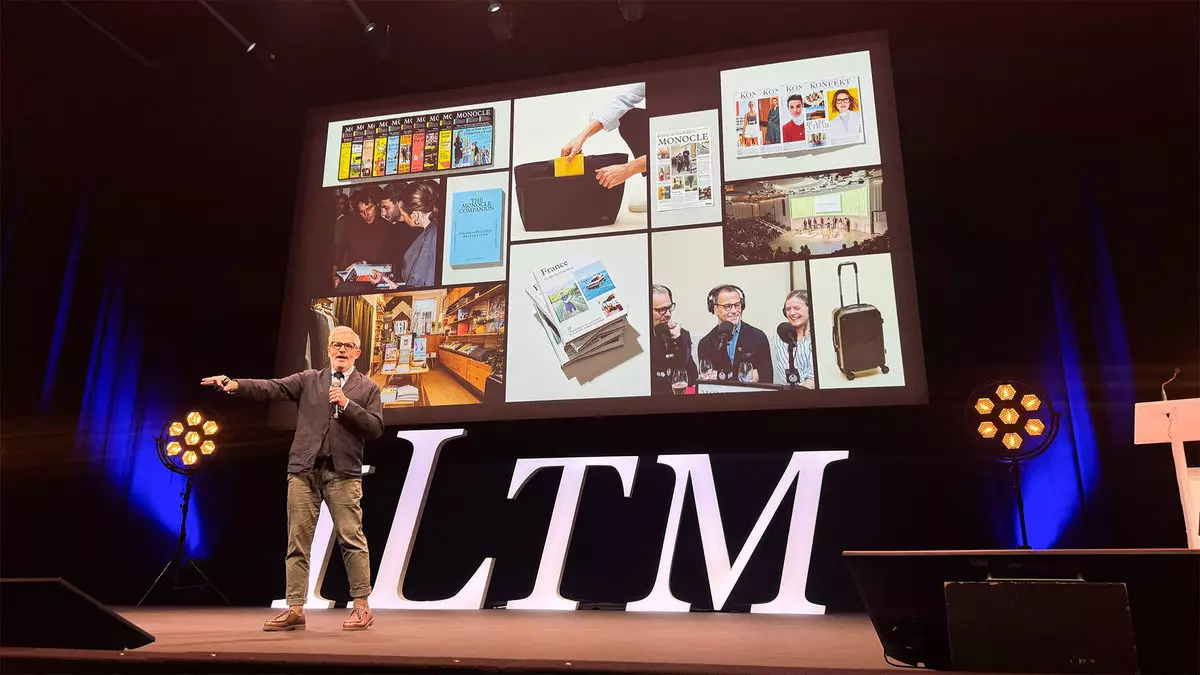As the hospitality industry continues to recover from the upheaval of the COVID-19 pandemic, guests have begun to voice their experiences with a newfound candor. They often express a mix of delight and frustration regarding modern amenities and services. This evolving landscape is not just about luxury but also about authenticity, simplicity, and connection. A notable figure shining a light on these issues is Tyler Brule, the editorial director of Monocle. Recently, at the International Luxury Travel Market (ILTM) held in Cannes, France, he publicly addressed his concerns regarding current hospitality trends. His insights resonate with many, highlighting a growing desire for richer, more tactile experiences within the luxury hotel sector.
One of Brule’s primary criticisms revolves around the ubiquitous adoption of QR codes that replaced traditional menus in restaurants. While these digital solutions were appreciated for their hygiene during the pandemic, they have become sterile and impersonal over time. Brule champions the idea of returning to physical menus that engage the senses. He argues, “We want texture. We want luster and great paper,” suggesting that a beautifully designed menu adds to the overall dining experience. This sentiment reflects a broader yearning for tangible experiences in an increasingly digital world.
The pandemic also introduced the concept of the lobby doubling as an office space, which Brule critiques for compromising the elegance of public areas. The merging of work and leisure can often disrupt the ambiance of luxury hotels, making them feel more like co-working spaces than havens of luxury. Brule’s nostalgic references to old-fashioned phone booths highlight a desire for designated spaces that prioritize comfort and tranquility. By advocating for a return to more defined areas within hotels, he emphasizes the importance of maintaining a balance between productivity and relaxation.
While many hotel brands endorse digital check-ins for their convenience, Brule presents a counter-opinion in favor of more traditional approaches in luxury settings. He argues that the intricacies of navigating a digital interface can create stress rather than alleviate it, especially for guests who may struggle with languages or technology. In a market that aims to pamper and indulge, the experience of toggling between screens often detracts from the enjoyment of arrival. Returning to simpler check-in methods would not only reduce friction for guests but also strengthen the personal connections that are integral to luxury service.
One of Brule’s more controversial points pertains to the increasingly blurred lines between luxury hotel staff and guests. With both often adorning similar designer attire, the distinctiveness of service personnel has become muddled. Brule laments that the absence of recognizable and formalized uniforms creates confusion around who is there to assist. He argues for the necessity of well-crafted uniforms that not only serve as identifiers but also contribute to the hotel’s brand identity. The visual clarity provided by distinct attire allows for a more polished and professional atmosphere, enriching the overall guest experience.
Lastly, Brule’s passionate appeal for luxurious hotel bars to extend their hours strikes a chord with many travelers. The trend of early closing times, particularly in vibrant regions like Asia, frustrates guests seeking late-night leisure. By advocating for a return to lively nightlife, Brule encapsulates the essence of luxury travel as not just a place to stay but also a hub for social interaction and experiences. Travelers should have the option to enjoy the ambiance and culture that a destination offers, and these offerings should align with the passions and preferences of modern luxury guests.
Tyler Brule’s observations resonate as a clarion call for the hospitality industry to reassess its priorities. As the sector navigates through the complexities of post-pandemic recovery, the emphasis should not solely be on technological advancements but should also focus on restoring authenticity and simplicity in guest experiences. A balance of modern amenities with traditional charm creates a holistic approach that addresses the desires of contemporary luxury travelers. By heeding these insights, hotels can redefine what it means to deliver unparalleled service while fostering genuine connections with their guests.


Leave a Reply